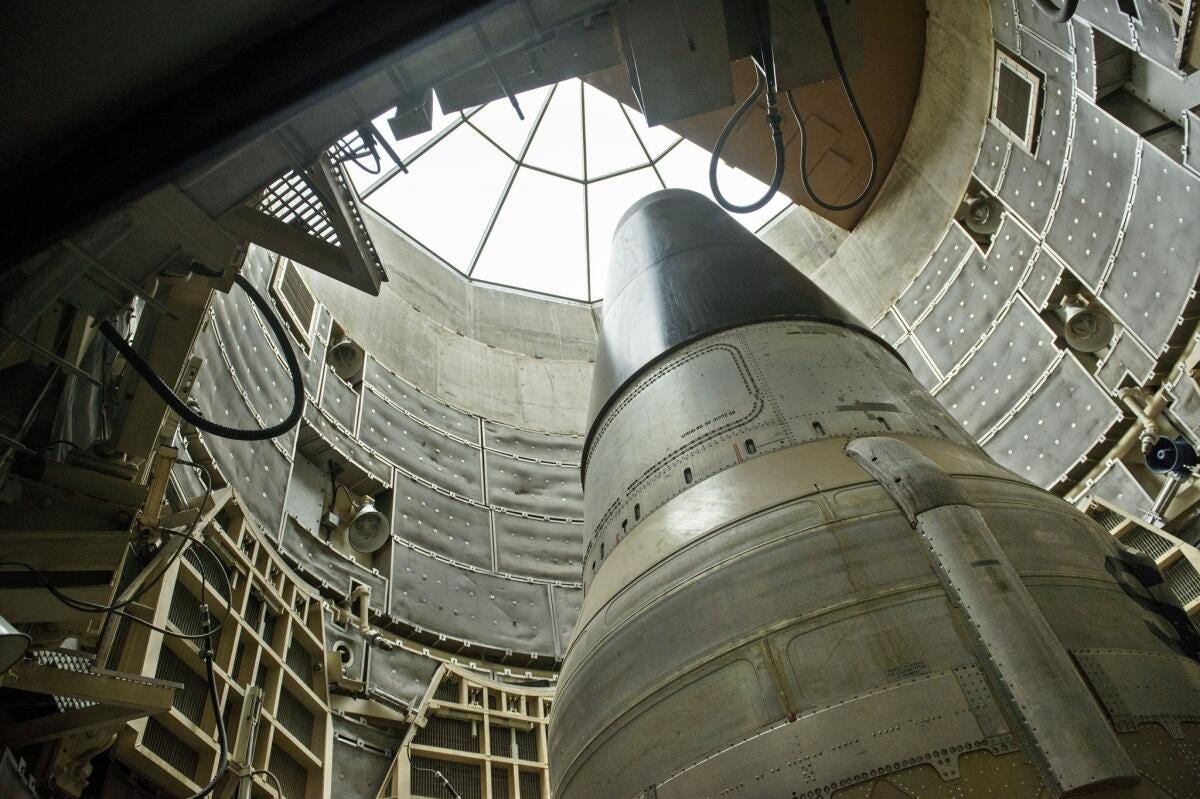Reprinted with permission from Greg Mitchell’s newsletter Oppenheimer: From Hiroshima to Hollywood.

There’s an important, if scary, opinion piece today at The Washington Post by Jon Wolfsthal, director of global risk at the Federation of American Scientists and former National Security Council senior director under President Barack Obama. He cites the (still) current remnant of Cold War tensions that seemingly allows any U.S. president to start a nuclear war without what you might call checks and balances.
Wolfstahl recalls the dangerous final days of the Nixon and Trump presidency when others did intervene to try to block any nuclear launches ordered from the White House but he insists these roadblocks were not really allowed under present policy. Especially with Trump having a real chance to return to power in January 2025, he calls on President Biden to change policy now. Of course, warning about our “first-use” policy has driven my own writing of three books and hundreds of articles and directing a current PBS movie…
I’ll excerpt from the first part of the piece, then follow link to see steps he proposes with further delay. You can still subscribe to this newsletter for free.
by Jon Wolfshal
Whoever is sworn in on Jan. 20, 2025, will immediately be vested with the sole legal authority to order the use of the United States’ nuclear weapons. If a sitting president decides to exercise that authority — for almost any reason — no one can legally stop them. That must change.
This is not a new problem. Two of the 14 presidents in the nuclear age have behaved dangerously enough that their own officials have tried, in legally questionable ways, to insert themselves into the nuclear chain of command.
In President Richard M. Nixon’s final days, then-Defense Secretary James Schlesinger declared that any nuclear order had to be checked with him first. The fact that Donald Trump remains the front-runner for the 2024 Republican nomination injects additional concern given his behavior as president. In the last few days of Trump’s term, then-Chairman of the Joint Chiefs of Staff Gen. Mark A. Milley tried to mitigate these risks by telling officers at the National Military Command Center (NMCC) that if they received a nuclear launch order from Trump, they must loop him in. “I’m part of the procedure,” Milley reportedly told subordinates.
We might want to thank both Milley and Schlesinger for did what they did, but they might have broken the law in doing so. Though the chairman of the Joint Chiefs is the country’s senior military officer, he is not part of the nuclear-launch process. Nor is the defense secretary, secretary of state or even the commander of U.S. Strategic Command.
To initiate a nuclear strike, the president can issue an order bypassing senior military leaders and advisers. Every president carries with him a sealed card known as the “biscuit.” The president can call the NMCC at any time and use the code from the biscuit to verify his identity — and the weapons get launched. As commander in chief, a president can even order the watch officer not to tell superiors that an order has been given. So even if a concerned chairman of the Joint Chiefs instructs his soldiers to inform him of any such command, the president can simply override that “safeguard” at his discretion.
The chain of command, however, is different for almost every other decision to use military force. For non-nuclear decisions — including conventional military strikes or sending soldiers into combat — the president must give an order to the defense secretary, who then issues written instructions to the relevant combatant commander. It’s a transparent system that encourages accountability.
Why are nuclear weapons procedures different from conventional ones? Because, during the Cold War, speed was seen as essential for deterrence. If a Soviet nuclear bolt from the blue could kill a sitting president before he had time to order a counterattack, adversaries were thought to have an incentive to initiate a first strike. By being able to respond quickly, without having to work through layers of officials, deterrence was thought to be more robust.
But there is no reason today to rely on speedy decision-making during situations in which the United States might launch first. Even as relations with Moscow are at historic lows, we are worlds removed from the Cold War’s dominant knife’s-edge logic. This means checks and balances on a president’s decision to start a nuclear war can be adopted without sacrificing America’s security or the protection of our allies. It’s time our institutions caught up with this strategic reality.
Thanks for reading Oppenheimer: From Hiroshima to Hollywood! Subscribe for free to receive new posts and support my work.
Greg Mitchell is the author of a dozen books, including “Hiroshima in America,” and the recent award-winning The Beginning or the End: How Hollywood – and America – Learned to Stop Worrying and Love the Bomb, and has directed three documentary films since 2021, including two for PBS (plus award-winning “Atomic Cover-up”). He has written widely about the atomic bomb and atomic bombings, and their aftermath, for over forty years. He writes often at Oppenheimer: From Hiroshima to Hollywood.
